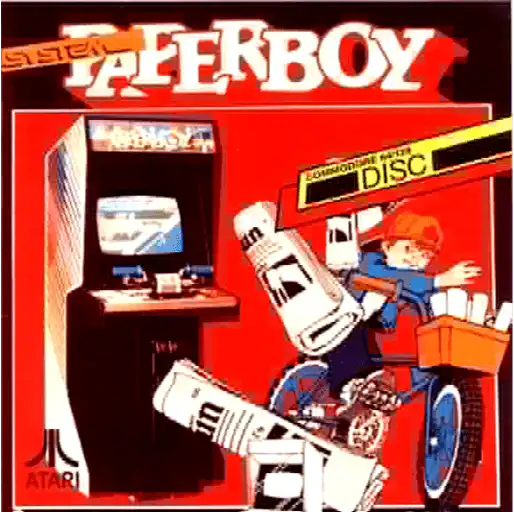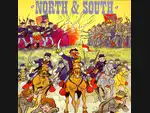
Play Paperboy: Mastering the Classic Arcade Game Techniques
In the world of retro gaming, few titles capture the essence of arcade fun like Paperboy.
Players take on the role of a young paperboy who must navigate a busy suburban street delivering newspapers while avoiding obstacles and earning points.
This classic game, released in 1984, has not only entertained countless players but also left a lasting mark on gaming culture.
From its simple yet engaging gameplay mechanics to its quirky characters, Paperboy offers a nostalgic experience that resonates with both older gamers and newcomers discovering it for the first time.
By mastering the challenges of the street, players can experience the thrill of a paper delivery that combines skill and strategy.
Whether reminiscing or playing for the very first time, Paperboy reflects a unique slice of gaming history that deserves to be revisited. This blog post dives into what makes Paperboy an enduring favorite, exploring its gameplay, mechanics, and impact on the gaming community.
Key Takeaways
- Paperboy is a classic arcade game that has captured audiences for decades.
- The gameplay involves navigating challenges while delivering newspapers in a suburban neighborhood.
- This game has significantly influenced gaming culture and remains popular today.
Paperboy: An Overview
Paperboy is a classic arcade game first released in 1984. The game puts players in the role of a young paper delivery person, navigating through suburban streets.
The main objective is to deliver newspapers to subscribers while avoiding obstacles. Players must throw papers at houses, aiming for those who have subscribed. Failing to deliver correctly can lead to unwanted consequences.
Key Features:
- Gameplay Duration: The game lasts for seven in-game days, from Monday to Sunday.
- Obstacles: Players face various challenges like dogs, construction workers, and rogue tires.
- Scoring System: Points are earned by delivering to customers and can be lost by damaging properties of non-subscribers.
The game presents a unique mix of fun and strategy. Each day starts with an overview of the street, showing where subscribers live. Players need to strategize their routes to maximize deliveries and minimize damage.
This nostalgic title remains popular for its engaging gameplay and quirky graphics. Many gamers still enjoy Paperboy today, often playing it online through various platforms. For those interested, they can play the game online for free.
Gameplay and Mechanics
In "Paperboy," players take on the role of a young paperboy navigating a suburban neighborhood. The game involves various aspects, such as delivering newspapers while facing numerous challenges and utilizing specific controls.
Core Gameplay
The core gameplay of "Paperboy" centers around delivering newspapers to the correct houses on a designated route. Players earn points for each successful delivery but can lose them for missed houses or damaged property.
While riding a bicycle, players can choose to throw papers at houses to land them on the porch or in the yard. Accuracy and timing are essential, as hitting the wrong target can lead to penalties.
The game features a time limit, heightening the urgency to complete the route before the day ends.
Controls and Interface
Controls in "Paperboy" are relatively simple. Players use a joystick or arrow keys to navigate their bike. Throwing papers involves pressing a button or key, allowing players to launch them accurately.
The interface is straightforward, displaying the remaining time, score, and the number of successful deliveries. Players can easily see their progress throughout the game.
Familiarizing oneself with the controls is crucial, as quick reflexes and coordination play a significant role in achieving high scores.
Obstacles and Challenges
As players navigate the streets, they face various obstacles that make gameplay more complex.
Common challenges include avoiding cars, dogs, and pedestrians. Collisions with these obstacles can result in losing points or even the game.
Additionally, there can be house-specific challenges, like angry customers or pets. Managing these hazards while trying to deliver newspapers can be tricky.
Success depends on a player’s ability to anticipate and respond quickly to these challenges, keeping things interesting and engaging throughout the game.
Cultural Impact
"Paperboy" has left a notable mark on gaming culture and society since its release. Its unique gameplay mechanics and nostalgic charm have influenced various media and inspired a generation of gamers.
Critical Reception
Upon its launch in 1984, "Paperboy" received significant praise from critics and players alike. Reviewers admired its innovative approach, which combined humor with the everyday task of delivering newspapers. This blend made it stand out among arcade games of the time.
Players enjoyed the challenge of navigating obstacles while trying to keep subscribers happy. Its graphics and sound design were also well-received for their charming presentation.
The game quickly became a classic, often cited in discussions about the Golden Age of arcade gaming. Many still view it as a nostalgic trip back to simpler times, capturing the challenges of youth in an engaging format.
Influence on Popular Culture
The influence of "Paperboy" extends beyond gaming. Many references to the game can be found in films and television shows, showcasing its role in shaping pop culture.
The comedic elements and relatable scenarios within "Paperboy" often resonate with audiences, making it a popular topic in nostalgia-driven media.
Additionally, the character of the paperboy has become a cultural icon, symbolizing childhood responsibilities and adventures on the neighborhood streets.
The game's mechanics, where players must deliver papers while avoiding obstacles, have inspired other games that feature similar gameplay styles, blending humor with a task-oriented focus.
Legacy and Revivals
"Paperboy's" legacy has endured through various revivals and ports across many platforms.
Its simplistic yet challenging gameplay continues to attract new players, proving its timeless appeal.
Many modern indie games have drawn inspiration from "Paperboy," incorporating its principles of fun and nostalgia. Also, remakes and updated versions have appeared on mobile and console, ensuring that the game reaches a wider audience.
This enduring popularity highlights its status as a quintessential part of video game history.
Its unique charm and gameplay mechanics remain a reference point in discussions about classic arcade experiences.







